Log in and enrol
The strange paradox of the world energy question
The strange paradox of the world energy question
A multidimensional and systemic thinking about the world energy challenge
Introduction to the Sustainability series
This MOOC is part of the series on “Sustainability”, which is one of the world’s major challenges of today and tomorrow and requires multidisciplinary competences. The series provides technical knowledge on a variety of topics, such as sustainable building, energy transition, water management and food waste prevention.
See the full seriesCourse description
A continuous flow of energy crosses our whole life. The food we eat, the car we drive, lights that illuminate our cities or the radio that plays our favorite songs, are all manifestations of energy. Our biological life can be explained in terms of energy and even our emotions and feelings to a certain extent.
Ever since humankind has walked the Earth, we have constantly changed ourselves and the world we live in. In the contemporary era, we have learned more on the laws of nature achieving admirable results in the field of science, technology, agriculture and health and we have learned how to use energy for satisfying societal needs. On the other side, we are more and more contributing to medium term natural changes with a deadly cocktail of greenhouse effect, local pollution and plundering of ecosystems. The uneven distribution and access to energy resources hinders social inclusion and equity.
The world energy challenge goes right to the heart of this paradoxical question. On the one hand, it is undeniable that the achievements of modern civilization are linked with the capability of humankind to handle energy resources. Nonetheless, energy production at current rates, and with the current mix of resources, results in serious and irreversible environmental changes, while determining socio-economic inequalities and triggering geopolitical tensions.
The world energy challenge deals also with our psychological and cultural aptitude: the willingness to progress at all costs that often make us no longer able to set the path toward an authentic human and social progress. In doing so, the contemporary energy crisis goes along with a civilization crisis.
The transition of the energy system toward a more equitable, green and fair asset with rational energy use is also urgent in the broader context of the Agenda 2030 and the new sustainable development paradigm just launched by the United Nations organization.
In this regards, the energy transition is not an end in itself but rather a means to achieve human prosperity: people are at the center of this transition.
This course will take you on a journey of the world energy challenge. We will discover how energy is the secret driver of life. We will explore the different forms of energy, starting from the solar radiation, and the amount of available energy through fluxes and stocks on Earth. We will review the use of energy from ancient times to present-day. We will describe global trends in energy consumption, the UN global agenda on sustainable development and the pathways toward the next energy transition. We will discover how the pace of these changes is a slow incremental process that needs a high commitment from institutions, firms, and people like ourselves beyond the role that science and technology may play. Science and technology will certainly have a major role in the next energy transition provided we have the talent to use them properly. Our responsibility is no longer divisible in space and time and does not concern only with the long-term survival of humankind, but it pertains the dignity of our existence in the Universe. We hope to drive you in a journey that will change your perspective about the energy challenge showing not only complexity but even the opportunity we, as humankind, might gain from accelerating the transition toward a more sustainable energy system.
Total workload of the course: 15 hours
This MOOC is provided by Politecnico di Milano.
This course is offered in the framework of the Alta Scuola Politecnica - a joint initiative between the Politecnico di Milano and the Politecnico di Torino.
In 2004, the Politecnico di Milano and Politecnico di Torino founded the Alta Scuola Politecnica (ASP), restricted to 150 young and exceptionally talented students, selected solely on the basis of merit, among the applicants to the Laurea Magistrale programmes (equivalent to a Master of Science) in Engineering, Architecture and Design at the two universities.
The resulting Community is made up of very motivated and exceptionally qualified students (about 60% achieved their Bachelor of Science – B.Sc. – degree cum laude) with a passion for innovation, coming from about 20 different countries; more than 1/3 of them are women.
These students follow a curriculum additional to their degree programmes, completely in English, based on ad-hoc courses and the development of multidisciplinary projects.
The mission of ASP is to provide society with high-profile graduates combining in-depth (vertical) disciplinary knowledge from their Laurea Magistrale programmes with interdisciplinary (horizontal) skills that are needed to work in a truly multidisciplinary environment.
Intended Learning Outcomes
By actively participating in this MOOC, you will achieve different intended learning outcomes (ILOs).
- Describe how energy works and is the driver of life. (ESCO Skills: energy)
- List the different forms of energy, starting from solar radiation, and the amount of available energy through fluxes and stocks on Earth. (ESCO Skills: energy; solar energy; wind energy)
- Describe the use of energy from ancient times to present-day and the global trends in energy consumption. (ESCO Skills: analyse energy consumption; energy market)
- Describe the links between energy and geopolitics, the UN global agenda on sustainable development and the pathways toward the next energy transition. (ESCO Skills: alternative energy; renewable energy; sustainable development goals)
- Explain the main challenges and objectives of the next energy transition toward a world with minor impact on ecosystems, a fair distribution of resources and a reduced carbon lock-in of our economy. (ESCO Skills: development economics)
Prerequisites
No prerequisite knowledge is required.
Activities
A Forum section is available. The Forum is designed to allow students to exchange opinions and discuss open questions. The instructors participate in the Forum as well, as Administrators, and oversee the developing of the threads.
Section outline
-
-
In this module we will discover how energy transformations are essential in the Universe and for life evolution on Earth, the way complex societies flourished through the control and harvesting of progressively higher and denser energy flows.
-
This week will address and analyze the main dimensions of the contemporary “energy question” including environmental issues and social challenges.
-
This module will survey the latest data about world primary energy supply and final consumption and the required global and individual commitment to tackle the transition of our energy system.
-
This is the module where the main challenges and objectives of the next energy transition toward a world with minor impact in ecosystems, a fair distribution of resources and a reduced carbon lock-in of our economy are addressed. The role of science, technology, education and responsibility is discussed as well.
-
-
-
Bibliography Page
-
Assessment
The course is organized into different weeks and modules. At the end of each week, students will take a quiz to check their understanding. A final quiz is also provided to assess the general understanding of the main topics of the course.
The total score weight is made of:
- 70% Weekly Quiz
- 30% Final Quiz
You have an unlimited number of attempts at each quiz, but you must wait 15 minutes before you can try again. You will have successfully completed the course if you score a total of 60% (or higher) in each of the assessed quizzes.
The maximum score possible for each quiz is given at the beginning of the quiz. You can view your score in the quiz on your last attempt or on the 'Grades' page.
Certificate
You can achieve a certificate in the form of an Open Badge for this course, if you obtain, at least, 60% of the total score in the graded quizzes and by filling in the final survey.
Once you have completed the required tasks, you will be able to access ‘Get the Open Badge’ and start issuing the badge. Instructions on how to access the badge will be sent to your e-mail address.
The Badge does not confer any academic credit, grade or degree.
Information about fees and access to materials
You can access the course completely online and absolutely free of charge.
Course faculty
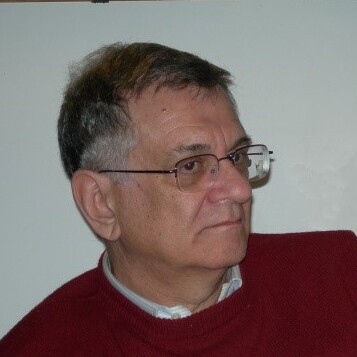
Prof. Michele Calì – Energy Department – Politecnico di Torino
Original idea, design of the course
Michele Calì received his degree in Mechanical Engineering in 1970 from the Politecnico di Torino. Since then, he has taught and studied in this university for 45 years, except for three years from 1986 when he was appointed Professor of Applied Physics at the University of Rome.
From the beginning, he taught undergraduate courses to students of mechanical, electrical, energy, civil and mathematical engineering, with two years’ experience in the faculty of architecture. He taught many courses with different titles, all focused on theoretical topics such as thermodynamics, heat transfer and energy sciences and on applied topics, such as thermal systems in buildings and in industry and renewable energy resources.
His research activity, documented by more than 200 papers and books, has involved experimental, theoretical and numerical studies in the field of energy. The main research lines concern with the thermo-physical properties of materials, the study of large networks for the transport of different fluids (e.g., gas, ventilation, hot and cold water, combustion products in large fires), high-temperature fuel cells and, more recently, the environmental, social and technological consequences of the global energy question.
Over the years, he was responsible of several projects in the areas of his competence, coordinating also large research teams. For nine years, he was the president of Ph.D. course in Energetics from Politecnico di Torino. He was also member of many scientific and engineering associations and currently, he is corresponding member of the Academy of Sciences of Torino.
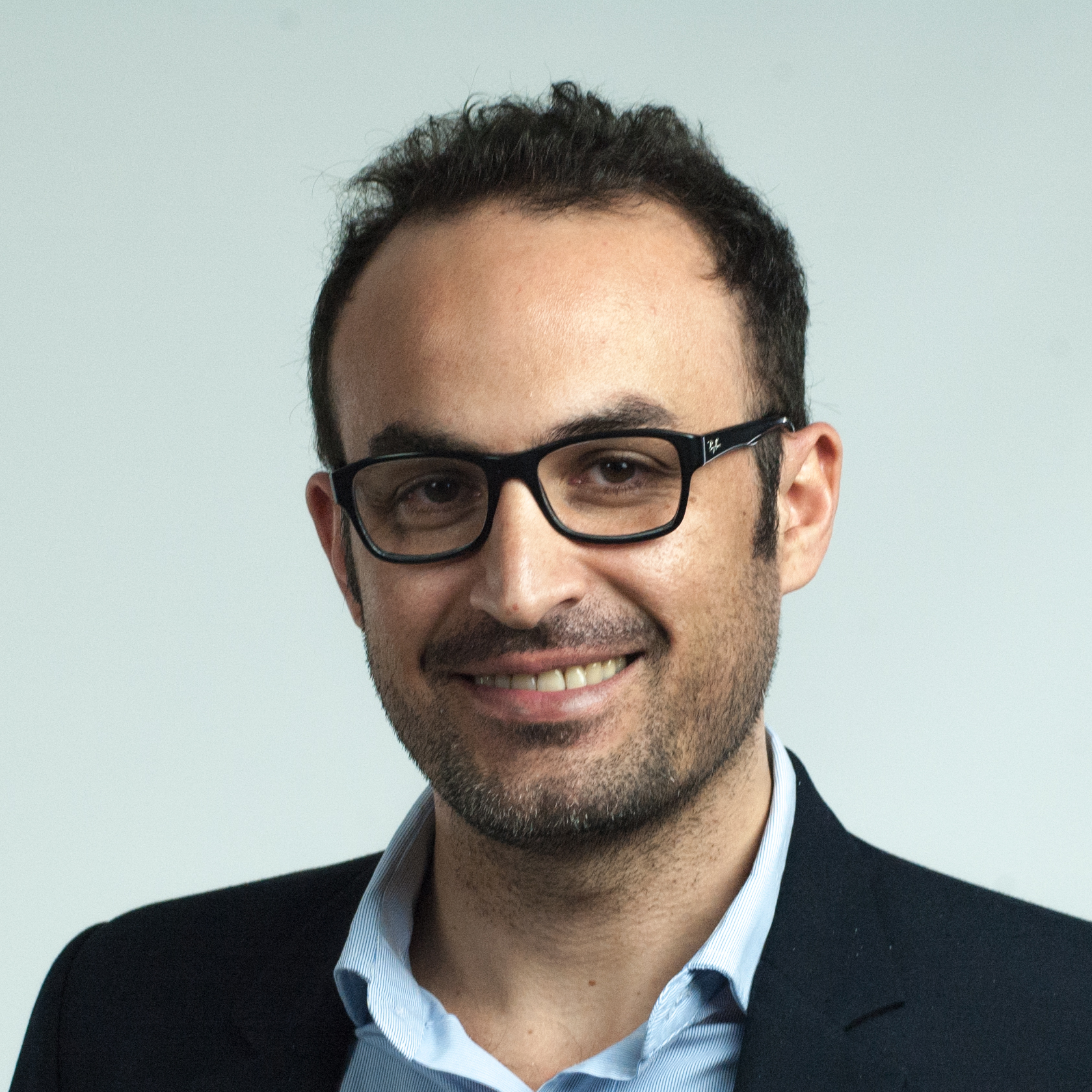
Prof. Pierluigi Leone – Energy Department – Politecnico di Torino
Original idea, design and coordination of the course
Pierluigi Leone is Associate Professor at the Energy Department of Politecnico di Torino in Italy. From this institution, he received both his M.Sc. in Mechanical Engineering in 2004 and his Ph.D. in Energetics in 2008. He is professor of Energy Sustainability and Global Energy Trends and Outlook.
Pierluigi Leone’s research is focused on electro- and thermo-chemical systems for energy applications with a particular focus on fuel cells, electrical energy storage devices and biomass processing technology. He has developed a strong interest in the field of energetics and in this framework to contextualize energy technology innovations, that is a systemic and a multi-dimensional assessment of energy systems.
Between 2007 and 2008, as a Marie Curie Alumnus he visited the Process & Energy Department of Technical University of Delft, the Energy System Department of Technical University of Munich and the Institute of Power Engineering of Warsaw.
He is author or co-author of more than 50 papers in international journals (2006-present). He has joined several EU projects in the field of fuel cells and bioenergy and has coordinated some national projects and industrial contracts in the field of energy harvest from residual biomass and marginal land.
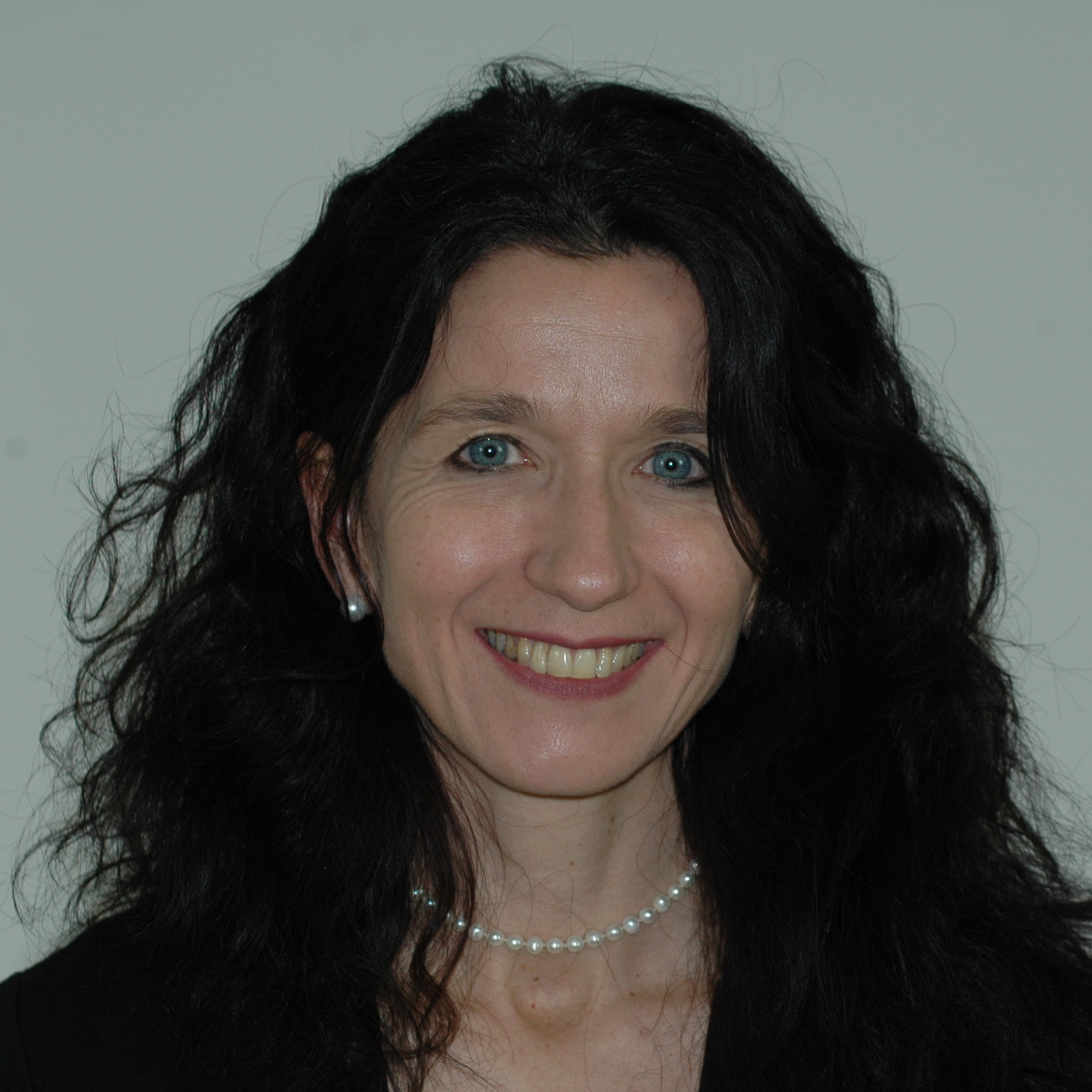
Prof. Emanuela Colombo – Energy Department – Politecnico di Milano
Coordination of the course
Emanuela Colombo has achieved both a PhD in Energetic and a Nuclear Engineering MSc at Politecnico di Milano in Italy where she is currently Associate Professor at the Department of Energy.
She has worked in different industrial energy sectors before joining the academic career where she has developed a strong research interest in the link between Energy and Sustainable Development, Energy Strategies in Developing Countries and Exergy-based Analyses for performance evaluation of energy systems.
She was named UNESCO CHAIR in Energy for Sustainable Development in 2012. She is author of more than 120 scientific papers (34 of which ISI/scopus) and the scientific coordinator of four European projects on Green Innovation (Egypt), Sustainable Energy Engineering (Kenya, Tanzania and Ethiopia), Water Energy and Food nexus (Egypt), Modern Energy services in refugee camps (Lebanon, Somalia, RCA and Colombia).
Since 2005 She has been working as Rector’s Delegate to Cooperation and Development at Politecnico di Milano. She coordinates the network of 29 Italian universities working in cooperation and development (CUCS) and is member of the Sustainable Development committee of EDF. She is Adjunct Professor at the Nelson Mandela African Institute of Science and Technology in Arusha. She has been appointed by the Italian Conference of the Rector (CRUI) as representative of the academic system within the “National Council for Cooperation and Development”.
Other contributions
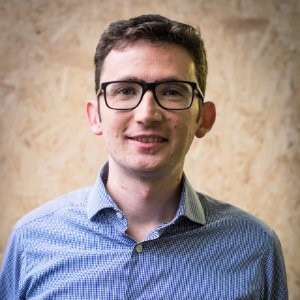
Dr. Andrea Lanzini – Energy Department – Politecnico di Torino
Energy in physics, Earth’s radiative energy balance, Earth’s energy stocks, Geobiochemical Planetary Cycles, Climate change, Energy and climate policy, behavioral change
Dr. Andrea Lanzini received his M.S. in Energy and Nuclear Engineering in 2007 and his Ph.D. in Energetics in 2011. He is presently assistant professor at the Energy Department of Politecnico di Torino (Italy) and senior member of the STEPS (Synergies of Thermochemical and Electrochemical Systems) Group. He is author or co-author of more than 50 articles in international journals with peer-review (2008-present). His research is in the field of fuel cells, carbon capture technologies and integrated energy systems analysis.
Fulbright alumnus and visiting research collaborator at Princeton Environmental Institute in 2010-2011. Work-package leader in the EU-funded project DEMOSOFC. He is a collaborator of the Energy Systems Analysis Group (ESAG) at Princeton.
He teaches classes in Energy Sustainability, Polygeneration and Advanced Energy Systems and Thermal Design and Optimization.
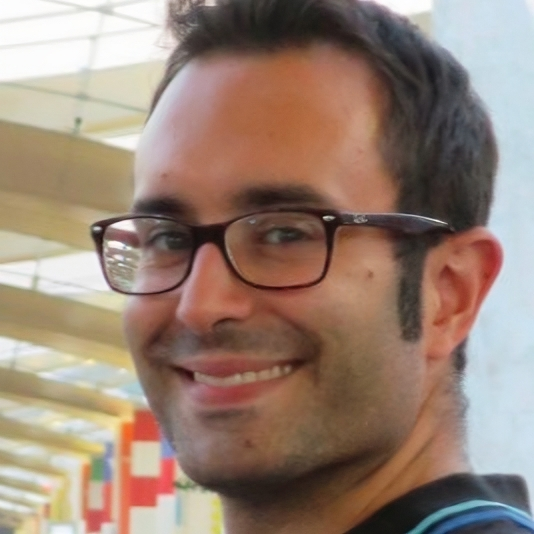
Dr. Gabriele Cassetti – Energy Department – Politecnico di Milano
Water-energy food nexus
PhD in “Energetic and Nuclear Science and Technology” on exergy analysis and environmental impact of energy systems, with particular attention to Risk Analysis.
Collaborator of the Rector’s Delegate to Cooperation and Development. He teaches Energy for Sustainable Development at Como Campus - Politecnico di Milano. Member of Unesco Chair in “Energy for Sustainable Development” at Politecnico di Milano. Manager of EU TEMPUS Project “TriNex: Knowledge Triangle Platform for the Water-Energy-Food Nexus” between Italy and Egypt.
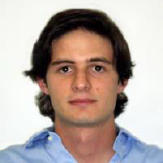
Dr. Francesco Gardumi – Energy Department – Politecnico di Milano
Game theory for energy and climate policy
Francesco Gardumi is Post-Doc researcher at KTH division of Energy Systems Analysis (dESA), and his research interest ranges from the integration of a Game Theory based market perspective into energy models, to the code development of energy modelling tools.
At dESA, he also works in the coordination of a Horizon 2020 project about the design of energy system pathways to 2050. In 2009 he got his Bachelor's degree and in 2012 the Master's degree, both in Energy Engineering at Politecnico di Milano.
During his studies, he carried out the Erasmus Programme at Instituto Superior Tecnico, Lisboa, and the research for the Master's thesis at TU Delft, the Netherlands. He got the PhD in Energy and Nuclear Science and Technology at Politecnico di Milano in February 2016, with a research about the integration of short-term flexibility constraints into long-term energy system models. During his PhD he also taught as a tutor in Engineering and Cooperation for Development master course and as an assistant in Heat and Mass Transfer bachelor course.
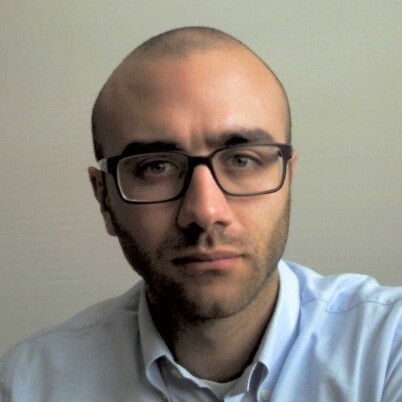
Dr. Matteo Rocco – Energy Department – Politecnico di Milano
Energy, economy and policy
Matteo V. Rocco achieved the MSc degree in Energy Engineering at Politecnico di Milano in 2011. He worked in the Italian company Ansaldo Caldaie S.p.A. as Computational Fluid Dynamics analyst, and in the Research Centre for Energy Resources and Consumption (CIRCE) of Zaragoza under the direction of Professor Antonio Valero.
In 2015, he took the PhD in Energy Science and Technology at the Energy Department of Politecnico di Milano. From April 2015 up to now he is Post-doctoral fellow at the same department. His research activities lies in the field of Energy engineering (Thermodynamic analyses of energy systems) and Industrial Ecology (Life Cycle Assessment and Input-Output economics). He currently is assistant professor for the Energy MSc course of “Advanced Thermodynamics and Thermoeconomics”. He has been co-supervisor on a number of MSc theses on energy, exergy and environmental analyses for energy systems, goods and services.
Acknowledgment
Prof. Romano Borchiellini, Politecnico di Torino, for the useful discussions about energy topics and sustainability and for his contribution in the design of this course.
Prof. Fabio Inzoli, Politecnico di Milano, for the many contributions he brought about the link between energy and sustainability. Francesco Romeo, Alessandro Manzato, Giorgio Bonamini, Lorenzo Mattarolo, Fabio Riva for their support in the preparation of some lectures.
Daniele Gianola for providing some of the pictures used in the course.
Ramses Morales Izquierdo for providing original cartoons used in the course.
Contact details
If you have any enquiries about the course or if you need technical assistance please contact pok@polimi.it. For further information, see FAQ page.